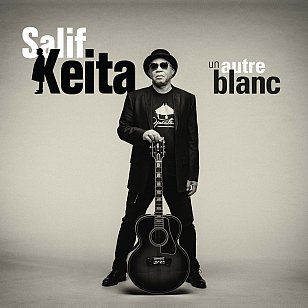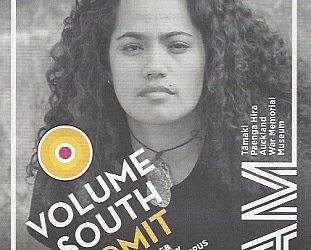Graham Reid | | 2 min read
Itarafo

This “retirement” thing is a long game: artists like Paul Simon, Sir Elton, various New Zealand television “personalities” and others announce their farewell . . . then tour for a few years to sell-out concerts, or clutter up the small screen with their goodbye-interviews.
Frankly I don't trust 'em.
None of them.
After having interviewed Seekers' singer Judith Durham many decades ago on her farewell tour – which turned out to be the first of a few solo farewell tours, not to mention her farewell tours with the Seekers (or whoever counted as a “Seeker” by that time) – I got to be cynical.
The great African singer Salif Keita has announced this is his final studio album (get the dicing of the onion right there, Uh-hu) but . . .
Elsewhere takes him at his word: After all he is 69 and his life has been much more arduous than his Western counterparts: 69 is very old in Mali – a decade beyond the average – and as a boy he was marginalised and ostracised by being an albino.
So he was probably lucky to get to double figures in his superstitious Mandinka world.
But he made his name and reputation with the seminal Super Rail Band and by his early Thirties he was, as with so many African artists, welcomed in Paris (in those decades before this current wave of anti-immigration right wing thugs). And he established his reputation as an extraordinarily powerful voice.
“The Golden Voice of Africa” was his sobriquet and . . . .
Acclaim followed as the white West embraced such African artists; he recorded and was championed by Peter Gabriel/Womad, jazz musicians such as Wayne Shorter and Zawinul, won numerous awards and . . .
There was so much more to his life, good works and a dozen or so albums which include the seminal Soro ('87), Amen ('91) and Papa 'in 99 (the latter on Blue Note).
His work was remixed and his astonishing, nail-drivingly powerful voice was sampled. He was a symbol of anti-racism and tolerance, a cultural icon and . . .
At the end of all that – and what was most important – he made great music.
The zeitgeist title of this album – in this moment of “black-face” debates and anger – reflects back to what he encountered in the converse. It could be an interesting “point of discussion”: the black man born as “another white face?”
It's an idea he has looked at a few times, notably on La Difference a decade ago.
This “farewell” studio recording – his 13th/14thby my count – features Angelique Kidjo, reggae star Alpha Blondy (on the roots-by-numbers archetypal groove of Mansa Fo La on which his raw vocals elevate by raging then winding right down to reflection) and Ladysmith Black Mambazo's collective voices and ululations on the seductively acoustic Ngamale over which his voice soars. But is that auto-tune there on the latter? It is. Jeez, not necessary Mr Salif.
Farewell albums – announced in advance of the actual career or life demise – will always engage attention, and this one should.
But it needs to be said that while some of what is here is elevating, it's pretty damn hard to get to auto-tune and the other lesser moments here. Yet his albums – aside from maybe Soro – have always been uneven if not flawed. This is another.
But Un Autre Blanc is self-produced, so this is what the singular Salif Keita offers as a farewell note.
Those who have hailed him and been respectful of his life and work might have preferred a better sign-off from a masterful singer, writer and political voice.





Peggy in America - Feb 25, 2019
Aaah, men, but Amen, if he does. Send-offs as a greeting card summation seems to be your take, but as always, I so appreciate your amazingly broad-spectrum of dose, and antidote. I may have come to this musician by some Am'urican collab, but no matter. You always have some insight, and I never thought of this person as Albino, or what that might (awe-fully) mean in his own culture. But the mention of current outcries about railing-about-nothing is likely also embodied in the same blather we all look at; perhaps even his own statement. No one knows what they look like outside, only how they feel, and his plaints are my faves. Unusual for my Me, a Rocker at heart, but what you said about the clarity of his voice is deadnuts on. It is, indeed, primal, indigenous, and most heartly felt, clear; resonant. I can hear it all the way over here, and -- I also always thought him a much younger man! -- I din't know!!! No matter. He brought a sense of tribalism's echo my way, and helped my curiosity about odd Instruments outside my own culture's. Thanks so, once again, for your amazingly global ear.
Savepost a comment